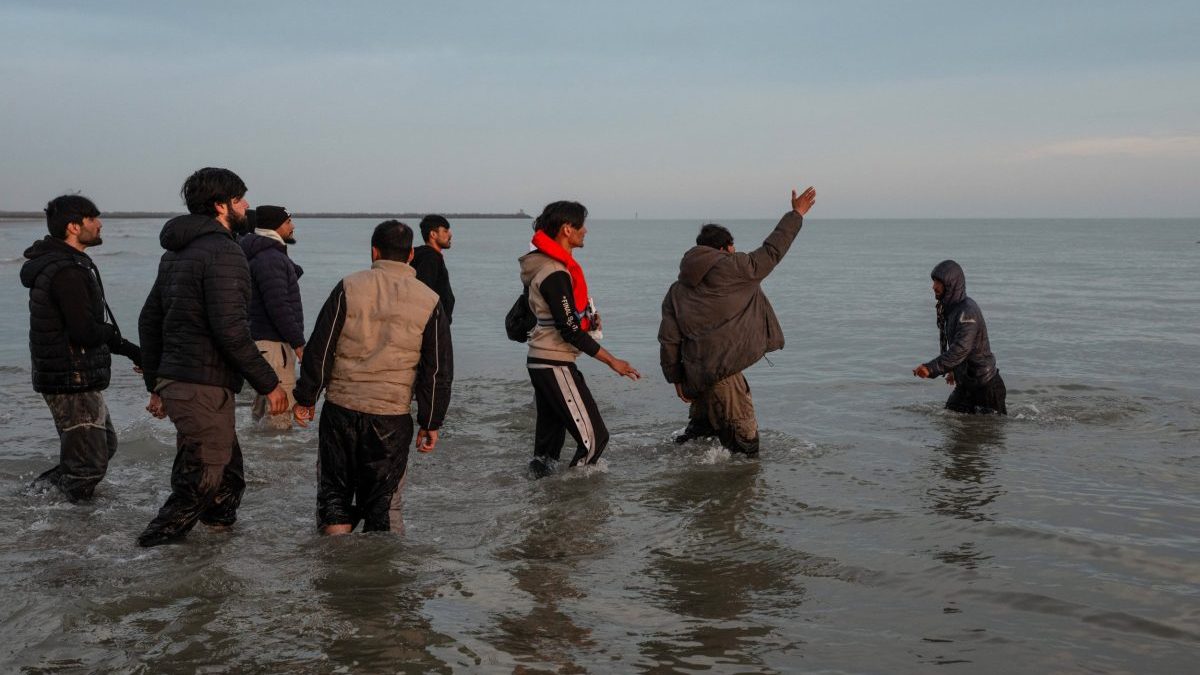
The closure of two schemes designed to resettle Afghans has triggered fears that more will now turn to small boat crossings
The UK has abruptly closed two schemes designed to resettle Afghans who fled their homes after the Taliban seized power in 2021.
The programme allowed Afghans who had worked with the British forces or were otherwise particularly vulnerable to the Taliban to apply for a visa to live in the UK.
While the number of Afghans applying for the programme had reduced over time, it was still active, with nearly 7,000 people resettled under the schemes in the year ending March 2025.
The schemes are no longer open to new applications, but those who had already put in applications will still be processed.
The closure has triggered fears that, without an official route to resettlement, more Afghans will now turn to small boat crossings to try to reach the UK.
As small boat crossings soar to record levels, what do experts think?
Unlikely to see increase in small boats
Unlike the Ukrainian resettlement scheme, the Afghan programmes only applied to specific groups and not the wider population.
This meant that Afghans not eligible under the UK’s programme still had to seek asylum like other nationalities, and they continued to cross on small boats throughout the duration of the programme, whereas Ukrainians have not.
In the year ending March 2025, Afghans were the most common nationality amongst small boat arrivals, accounting for 16 per cent of all those arriving.
The number of Afghans crossing the Channel peaked in 2022, also when the scheme was open, with 9,100 people making the journey.
Mihnea Cuibus, a researcher at the University of Oxford’s Migration Observatory, said a surge in the number of small boat arrivals was “fairly unlikely” because these were “very different groups”.
“There were always large numbers coming in the last few years, and the Afghan scheme, the safe and legal route, didn’t really change much of that,” he said.
“However, those numbers were lower than what we saw for resettlement last year, when we had around 7,000 people coming in for the schemes and we had a little over 5,000 people coming in small boats.
“The big difference was in gender splits; if you look at the Afghan scheme, around half of the Afghan resettled were women, whereas if we look at the small boats around 95 per cent of Afghan small boat arrivals are men.
“That’s one effect of the closure of the scheme; it’s no longer a route for Afghan women into the country.”
“Safe and legal routes can prevent people from coming into the country irregularly, but only if they are large enough,” he added.
“In the case of the Afghan schemes, these were never really large enough compared to the overall demand for for settlement from Afghanistan – if you look at the overall Afghan population of refugees and people are internally displaced, that’s well into the millions.”
Possible small rise in crossings as Afghans forced back
Jon Feantonby, chief analyst at the Refugee Council, said there could be a small rise in small boat crossings, but the impact was difficult to determine.
“We know from the UN’s refugee agency, the UNHCR, that in terms of the people that they think are in need of resettlement to somewhere like the UK, Afghans are the highest nationality at the moment,” he said.
“There’s always been much more greater need for safety than was going to be met by those schemes.”
Feantonby said a possible small boats rise depended on what happened within Afghanistan itself and the neighbouring countries to which many Afghans have fled.
He added: “What we’ve seen in recent weeks is the news that Afghans who have been in neighbouring countries are being pushed back to Afghanistan, and that is either going to put people at risk or force people to take onward journeys away from the region.”
Smugglers business model fuelled
Aid workers in Calais warned that the scheme shutting down would fuel people smugglers who organise Channel crossings.
Steve Smith, chief executive of Care4Calais, said that the closure was “completely counterproductive if the UK Government’s goal is to end Channel crossings.”
“Closing safe routes fuels the business model of smuggling gangs as it leaves people fleeing persecution, like Afghans, with no other option than danger – crossing through hostile countries, relying on smugglers, and risking their lives at sea,” he said.
“We need new safe routes to be created, not existing ones to be closed.”
The Government was approached for comment.
